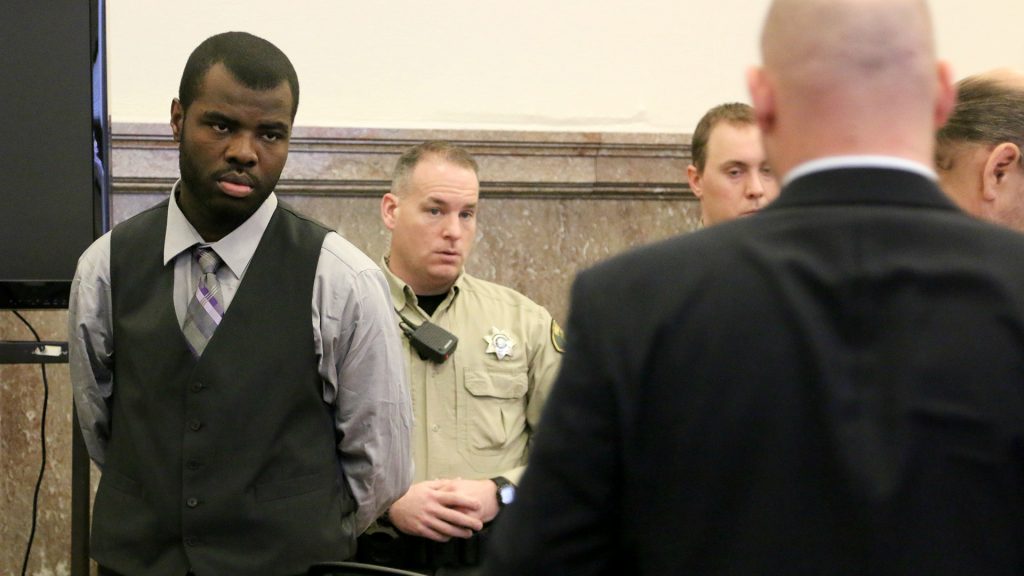DES MOINES — The trial for Lamar Wilson continued today at the Polk County Courthouse with testimonies from medical personnel and law enforcement that responded to the shooting in Iowa City’s Pedestrian Mall on Aug. 27, 2017.
Wilson is on trial for charges of murder in the first degree of Kaleek Jones. He also faces two counts of attempted murder and intimidation with a dangerous weapon.
Alyssa Miller, Jones’ fiancee, was called to the stand.
Miller testified the last time she saw Jones was the evening of the shooting.
“Kaleek and I were home all day,” Miller said. “We were spending time together because we knew I had to work that night.”
Miller said a friend had been downtown at the time of the shooting and called her to let her know what had happened. Miller immediately left her work and went to the hospital.
The defense began a line of questioning regarding a gun belonging to Miller, who had a permit to carry.
It was determined that Donte Taylor, a friend of Jones’ who was present at the shooting, had obtained Miller’s gun from a closet in her home without her knowledge. It was unclear how he obtained the gun.
Prosecutors called Ty Van Meeteren, a paramedic with the Johnson County Ambulance Service, to the stand. Van Meeteren described the area near the Sheraton Inn Hotel in the early hours that Sunday morning as chaotic with people running and screaming. He could hear someone yelling, “You got to help me, you got to help me.”
The person in distress was D’Andre Hicks, who had multiple gunshot wounds. Throughout his treatment, he asked about the welfare of his brother, Xavier Hicks, and Jones.
“Our main priority was to remove patients as soon as possible because the scene was not yet secure,” Van Meeteren said.
Van Meeteren and two other paramedics testified that the Hicks brothers and Jones did not have weapons on them at the time of their medical treatments. The paramedics also noted the patients did not tell them anything about the circumstances of the shooting.
Doug Carlson, one of the paramedics, said law enforcement officers told him Jones had been shot in the head, which, upon examination, turned out to be inaccurate information. The actual locations of injury were determined and treated at the University of Iowa Hospitals and Clinics.
Hans House, an emergency medicine doctor at UI Hospitals and Clinics who helped treat all three patients, noted that the Johnson County paramedics and UI Hospital staff performed their jobs to a high standard and the survivors wounds could have been worse.
“Paramedics did an amazing job with the patients,” House said. “With D’Andre, it’s amazing that bullet went through his belly and missed all the stuff that was there. He was very lucky.”
Dennis Firchau, a forensic pathologist at UI Hospitals and Clinics who performed Jones’ autopsy, also testified.
As Firchau described the autopsy procedure, he mentioned there were bags placed over Jones’ hands when his body was delivered. He explained that the purpose for this was to protect potential evidence for the investigation.
The defense asked if evidence had been pulled from Jones’ hands.
“Officer Hartman said that was not necessary,” Firchau responded.



